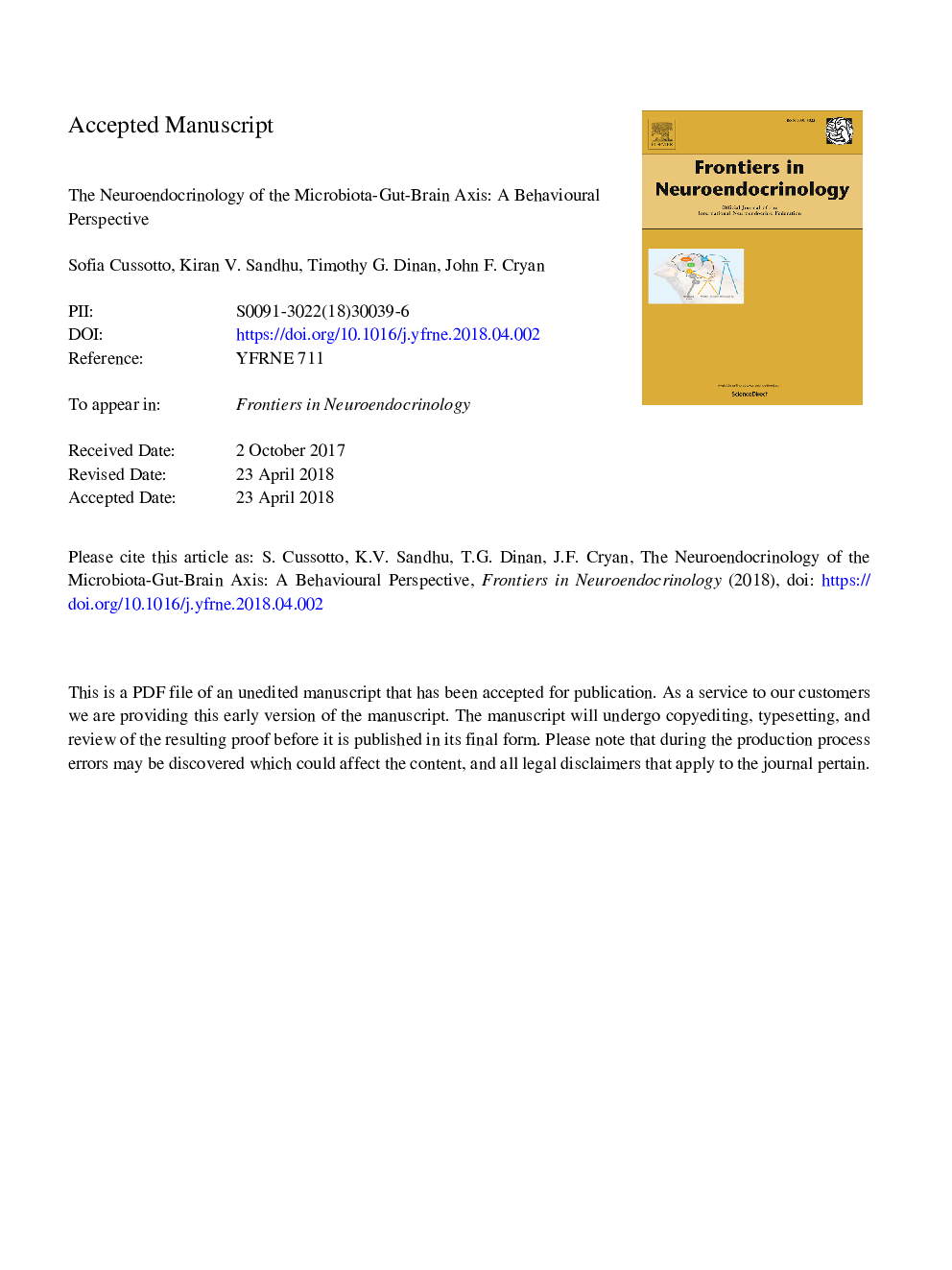| Article ID | Journal | Published Year | Pages | File Type |
|---|---|---|---|---|
| 11015269 | Frontiers in Neuroendocrinology | 2018 | 74 Pages |
Abstract
The human gut harbours trillions of symbiotic bacteria that play a key role in programming different aspects of host physiology in health and disease. These intestinal microbes are also key components of the gut-brain axis, the bidirectional communication pathway between the gut and the central nervous system (CNS). In addition, the CNS is closely interconnected with the endocrine system to regulate many physiological processes. An expanding body of evidence is supporting the notion that gut microbiota modifications and/or manipulations may also play a crucial role in the manifestation of specific behavioural responses regulated by neuroendocrine pathways. In this review, we will focus on how the intestinal microorganisms interact with elements of the host neuroendocrine system to modify behaviours relevant to stress, eating behaviour, sexual behaviour, social behaviour, cognition and addiction.
Keywords
Related Topics
Life Sciences
Biochemistry, Genetics and Molecular Biology
Endocrinology
Authors
Sofia Cussotto, Kiran V. Sandhu, Timothy G. Dinan, John F. Cryan,
